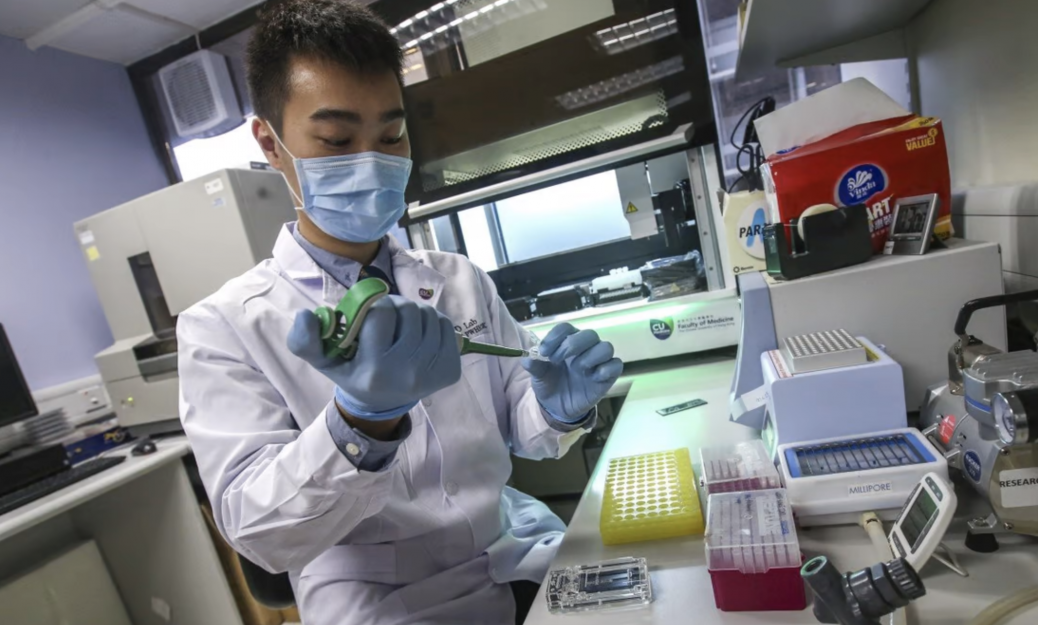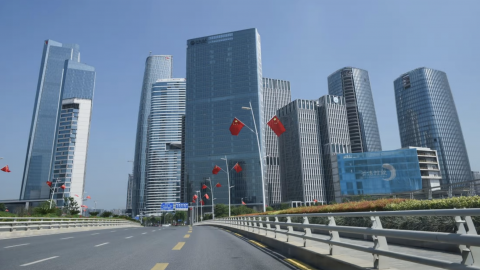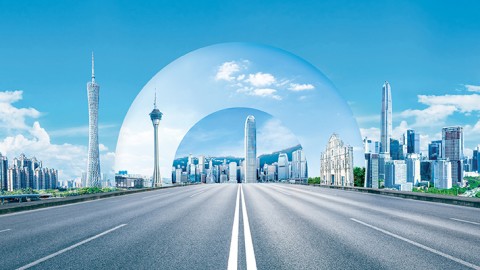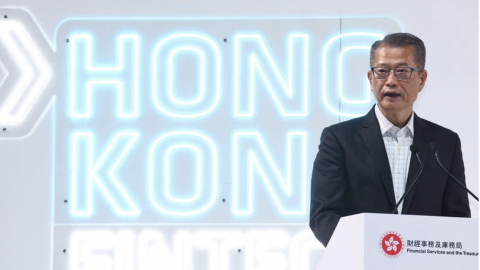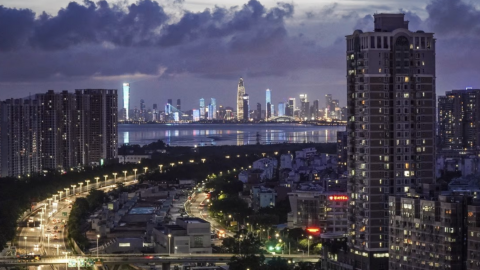“Beijing has finally agreed that Hong Kong should take a leading role to develop a hub in the Greater Bay Area for innovation in technologies to offer better health care services,” the source said. “The bay area will become a testing ground for Hong Kong.”
Hong Kong, Macau and nine cities in Guangdong province make up the Greater Bay Area, China’s ambitious plan to create a hi-tech economic zone to rival Silicon Valley in the United States.
The source said that in her policy address, Lam would honour pledges she made when she took office five years ago and pave the way for Hong Kong’s long-term development. She has not indicated yet if she will stand for re-election next year.
The measures include making it easier for villagers in the New Territories to sell ancestral land for building homes, releasing wetlands and abandoned farmland near the border with mainland China for mixed development, and earmarking funds to acquire private land for housing.
The source added that it would “still require some time” before the impact of the new policies were felt.
‘A magnet for talent’
Technological self-sufficiency is a priority for China under its 14th five-year plan. Han Wenxiu, deputy director of the Office of the Central Finance and Economic Commission, said last year that under the national plan, Hong Kong could be made an international innovation and technology centre.
The source said Lam received the green light for the health tech hub after lengthy discussions with the central government.
Hong Kong is currently home to more than 250 biotech businesses, and has poured resources into biotechnology since Financial Secretary Paul Chan Mo-po identified it in 2018 as a key area for developing innovation and technology.
The current administration has invested about HK$130 billion (US$16.7 billion) so far in innovation and technology through a host of measures.
More than 630 biotechnology-related projects ranging from stem cell therapy to modernised traditional Chinese medicine involving grants totalling HK$1.3 billion were approved by the Innovation Technology Fund as of December last year.
Hong Kong is also Asia’s largest, and the world’s second largest, fundraising hub for biotechnology, according to the Food and Health Bureau. As of June 2021, 67 health care companies completed their initial public offerings in Hong Kong, raising a total of HK$209 billion.
“Hong Kong can take the lead because it can attract global talent like young researchers and top scientists,” the source said.
At Hong Kong Science and Technology Parks, the number of biomedical start-ups and tech ventures has risen from 30 to more than 160 in the past five years.
One of them, OrbusNeich, is well known for developing a stent for heart patients which has an antibody coating that reduces the time they need to be on blood-thinning medication.
On Friday, a new Institute for Translational Research was opened officially at the Science and Technology Parks (HKSTP) to help turn research into products for the market.
It is headed by John Kao, chair professor of translational medical engineering at the University of Hong Kong, who welcomed the news about the health tech hub in the bay area.
“It will become a magnet to attract good people,” he said.
Kao said the new institute, with about 50 staff, could speed up the development of health tech by offering biomedical businesses help and strategies to turn their research findings into commercial products and link them with potential users such as the Hospital Authority and homes for the elderly.
Timing is ‘critical’
Given the risk of a brain drain triggered by changes to Hong Kong’s political landscape, Kao said the city had to stay competitive, as it already had top universities, a favourable fundraising market, good infrastructure and efficient logistics.
“Hong Kong is well positioned to be a pre-eminent hub for research and development of biomedical technologies, but there is a caveat, which is the timing,” he said. “What we do today and over the next five, 10 years will be absolutely critical to determine our success.”
Dennis Lo Yuk-ming, a top chemical pathologist at Chinese University, said that the bay area’s total population of 86 million could help genetic scientists develop accurate tests sooner.
“If we can access more data from a larger population, a test can be more reliable,” said Lo, who offers non-invasive prenatal testing and nasopharyngeal cancer screening in the bay area.
Without a large enough sample size, he said, it would be hard to recruit enough patients for trials to prove if a test was accurate or a drug was effective.
But he stressed that Hong Kong needed unobstructed transport of genomic data and DNA samples from the region, if it wanted to lead the health tech hub.
“A complicated approval process is currently involved in getting samples and data from the mainland delivered to Hong Kong … and such information is only sent to universities rather than biotechnology companies,” he said.
Optimistic about the health tech hub’s prospects, Peter Yan King-shun, CEO of Hong Kong Cyberport Management Company, said the city could tap its international connections and talent.
He said the Covid-19 pandemic showed the city had creative professionals able to quickly come up with useful health tech applications.
He pointed to Rice Robotics, which developed robots to sterilise shopping centres and help cafes deliver drinks in office buildings, and Roborn, which came up with touchless buttons or sensors for lifts.
“We are also more conscious about privacy issues, and people can be comfortable using our products,” he said.

